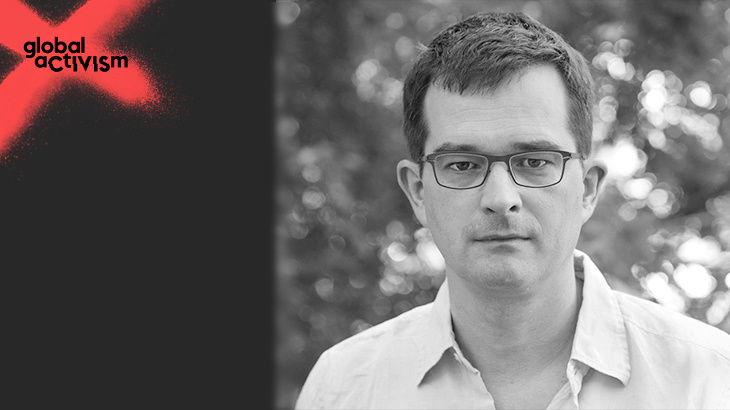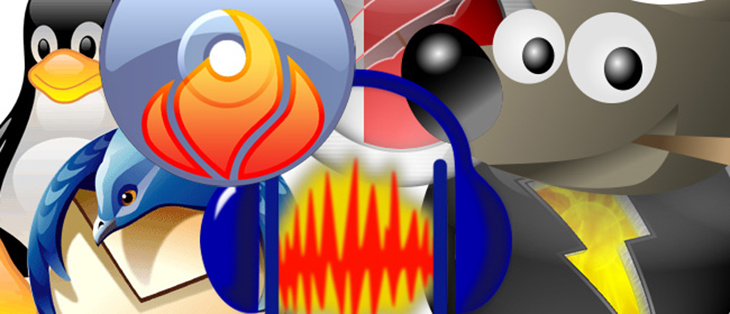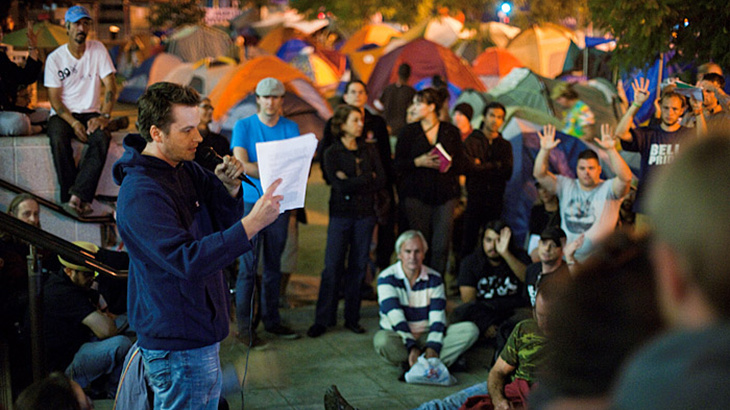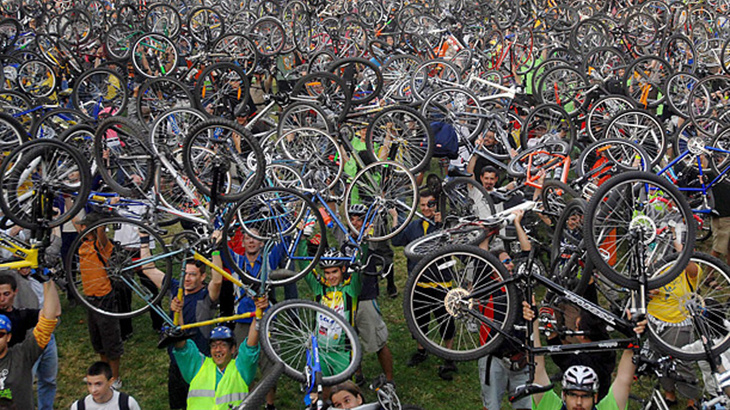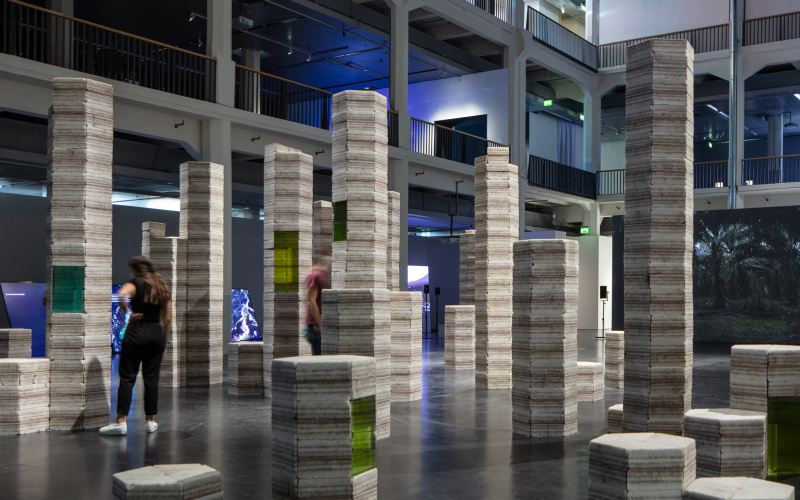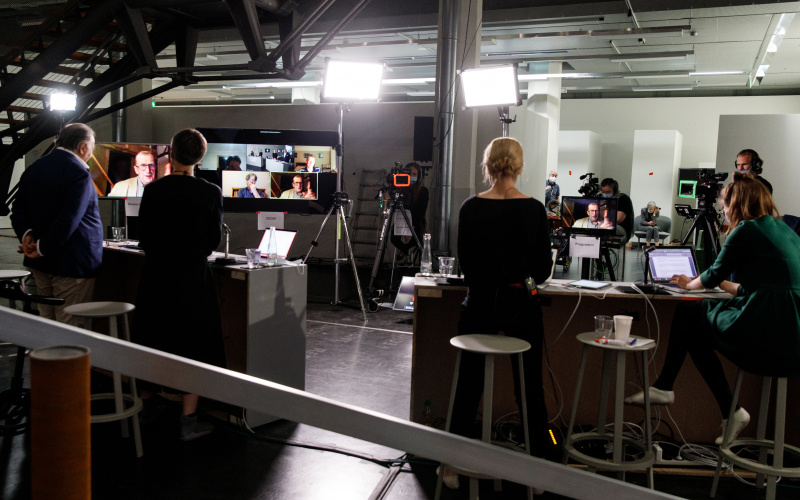New Activist Formation
Over the last decade, the Internet has been a laboratory not just for technical, but more importantly, for social innovation. Much of this evolved from the sharing of information resources. That experience now provides new foundations for practices of cooperation, with “open source” as its leading metaphor. While not all forms of sharing necessarily benefit society at large (terrorists also share knowledge), the experience of “being together” is a key element in the new forms of political activism. Its calls for sharing and collectivity are more than empty slogans: they are grounded in concrete, everyday experiences, renewed through collective action and guided by the conviction that one’s own personal goals and aspirations cannot be achieved against others, but with and through them. Such solidarity, embedded in new narratives and creating new, shared horizons for action, can provide the basis for novel cultural, economic, and political formations. And these, while predominantly originating in an online experience, are not restricted to the Internet.
Commons and Beyond
The most comprehensive of the new formations for organizing solidarity are developed through the rebirth of the idea and practice of the commons, or commoning, spearheaded by Free Software communities, Wikipedia, open data movement, but also articulated new approaches to shared urban spaces, gardens, forests, and so on. The core idea that a community organizes itself around the creation, maintenance, and development of a resource, is shared between all members. The focus lies squarely on use value. Market exchanges come later, if at all. Commons are long-term social and material processes. They cannot be created overnight and in order to become meaningful, they must exist over an extended period of time. This means that they require some kind of institutional framework that is both durable and flexible enough to meet changing demands and circumstances. There is no single model for institutions of the commons. On the contrary, it is one of their characteristics that they are sensitive to the particulars of the resource held in common and the composition of the group that manages this resource for its use value, as well as the general context in which the commons exist.
Commons are the most comprehensive, but by no means the only formation that can be distinguished in a preliminary inventory of new social forms of political organizing. Besides the commons, there are assemblies, that is, nonhierarchical, usually physical gatherings focused on consensus-based decision making, enacted, for example, in the squares taken over by the Occupy movement. And there are swarms, ad hoc, self-steering collective actors, such as “Anonymous” and ultra-quick social protest in the streets. Underlying and expanding all of these, creating the “new normal of social interaction,” are weak networks, which are networks and collectivities constituted by extensive, yet casual and limited social interaction on social network sites such as Facebook, Twitter, file-sharing sites, and others.
Across these new social forms, even if they not only differ from one another as ideal types but also each of them exists in a near infinity of concrete shapes, sizes, and flavors, there is something like a common culture emerging: a culture of autonomy and solidarity, based on participation, not representation, diversity, rather than homogeneity, openness to different levels of engagement, rather than uniform commitments. These are the first signs of social institutions that break decisively with the institutional mold of modern politics (and resistance) and chart new pathways into the future. An essay-length treatment of these issues can be found in my recent publication Digital Solidarity, PML Books, Mute, London, 2013.
Further information on: www.global-activism.de
About the author
Felix Stalder teaches Digital Culture at the Zurich University of the Arts, and conducts research at the World-Information Institute in Vienna. He is also a moderator of “nettime”, a critical nexus of the discourse on net culture, since 1995. His work focuses on the intersection of cultural, political, and technological dynamics, in particular on new modes of commons-based production, copyright, and transformation of subjectivity. His recent publications, talks, and interviews are available at felix.openflows.com.
News Type
News Category
- tracks & records
